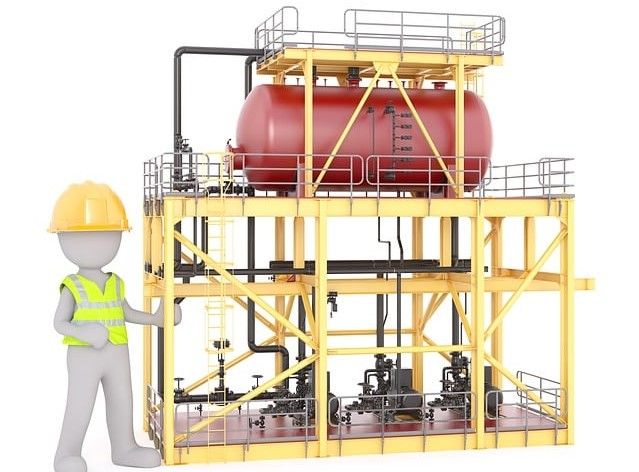These are revolutionary times, as ChatGPT and Artificial Intelligence become more mainstream and readily accessible.
By automating routine tasks and providing real-time data and analysis, AI is increasing efficiency and reducing costs, while also improving accuracy and safety. AI technology is transforming industries across the board, from healthcare and education, to transportation and manufacturing, with a recent Goldman Sachs study found that generative AI tools could, in fact, impact 300 million full-time jobs worldwide.
According to most media sources, AI is set to change the world as much as the invention of writing or the creation of the Internet. But what roles could AI play in the industrial chemical industry?
Industrial Chemical Sector and AI
There are already a number of technological applications and programs, which can flexibly be applied to tasks relevant for a chemicals producer or supplier, such as data mining and restructuring, targeted advertising, and creating accurate financial models.
What is most enlightening in AI’s current phase is its development of natural language processing. By leveraging deep learning algorithms, users can ask straightforward questions and receive simply worded answers. While this has enabled chatbots to take a ‘front of house’ role in marketing, it is also assisting chemical engineers and system designers as the AI is able to simplify complex issues and data sets into accurate and clearly worded information.
And because the AI has a built-in memory, it will remember previous conversations and use them to create deeper and more informative responses to future questions.

However, for tasks as complex as managing an industrial chemical facility or the logistics systems of a large chemical supplier, current AI technology must be combined with other progressive technologies, such as mixed immersive reality (a blend of augmented and virtual reality).
“Experts are building AI-models like ChatGPT to help create virtual worlds in the metaverse to run simulations and increase productivity/efficiency metrics,” explains Dijam Panigrahi, the Co-founder of Grid Raster, a company which provides an AI-assisted spatial mapping service with augmented and virtual reality. “More specifically, AI tools like ChatGPT and the metaverse can help create a 3D environment that replicates the real world, and the data used can be harnessed for analysis, running simulations and interacting with data more efficiently.”
The Chemical Industry in a Virtual World
For example, during design phases for tools or machinery, AI technologies must be manually instructed that physical objects are in a different position, as they are unable to recognize when physical objects shift. However, the coding of the virtual 3D world and conducting of simulations can be greatly aided by technology like ChatGPT.
By allowing the AI system to write the bulk of the code, developers and engineers can be left to debug errors or suggest tweaks. They can also be more innovative, because as the process time is reduced, experimental ‘blind alleys’ become less costly.
Meanwhile, on the manufacturing floor, those without full training in chemical processes can also better understand the code, as ChatGPT can translate it into natural language. This can greatly aid the establishment of new systems, increase safety, and shorten training times. Test simulations can even be run in virtual, metaverse environments.

Over time, it is envisaged that companies will operate a digital ‘twin world’. Developed and coded by AI, a workplace will have an online, virtual space, where workers, managers, and customers can meet and chat, sharing text, videos, and even face-to-face meetings.
Beyond that, here are some more examples of the potential benefits of AI in the chemicals sector:
· Knowledge sharing: By increasing collaboration and information sharing, AI systems are ideal for improving workplace efficiency, uniting the separate human parts into a more cohesive whole.
· Automated support: Engineers could employ cutting-edge technology that supports automation processes and shortens time spent on manual chores like data collection, report preparation, and industry trend tracking.
· Quality control: The role of a chemical engineer has always required a high level of accuracy and attention to detail despite multiple key components required to operate unfailingly.
Over time, systems which employ AI will become the most efficient ways to identify errors, saving time and cutting costs. The ability to visualize faults in text-based data more quickly than ever before, which is essential for code review, error analysis, and debugging.
· Planning and management: Because of the key role that chemical engineers have, optimising their organisation, discipline, and time management is essential. AI technology can improve the processes by enabling an intuitive platform for task management and planning.
· Privacy and security: The issue of cybersecurity is an ever-growing risk to industrial chemical companies, with data privacy, cyber-attacks, and system corruption from malware and viruses an ever-present threat.
The application of AI into systems can provide a new level of security, as the UK’s Chemical Industry Journal, explains, “Since metaverse environments have the digital twin as an integral part, the metaverse will offer much richer data. Security and privacy in metaverse environments cannot be solved by traditional security tools. However, technologies like AR/VR leveraging leading AI tools are better equipped to handle security and privacy related to digital twins.”

AI and ChatGPT are two technologies that are transforming the world as we know it. Automation technology using AI has the potential to revolutionize the way chemical producers and equipment manufacturers complete logical processes, whereas ChatGPT is a ground-breaking AI-driven technology which has already captured the attention of designers and engineers because of its natural language processing capabilities.
Two promising technologies that will change the world in the coming years. But where and how would you employ a high-powered computer assistant in your company?
Photo credit: Tumisu from Pixabay, Peggy und Marco Lachmann-Anke, Jcomp on Freepik, & Ojosujono